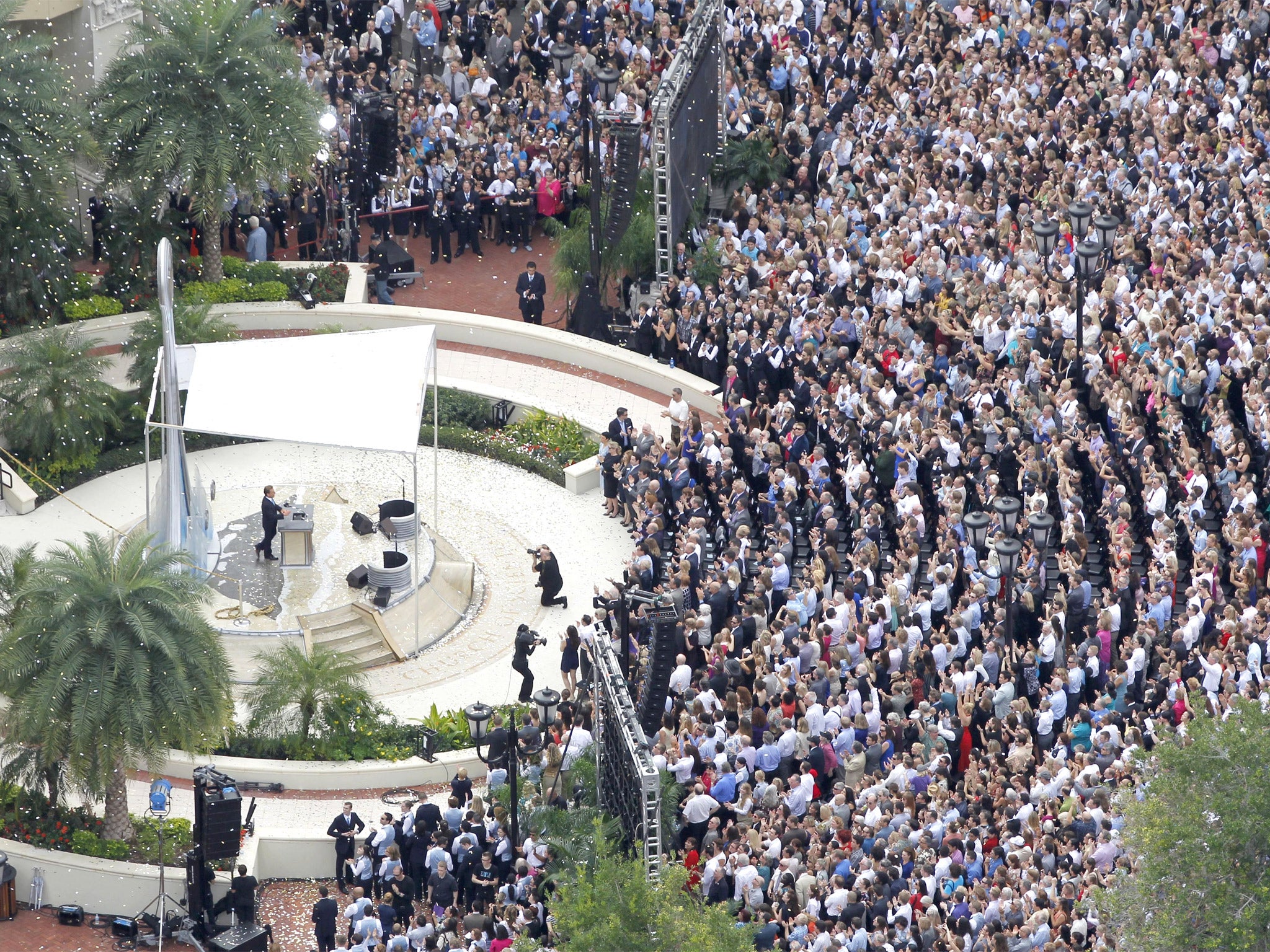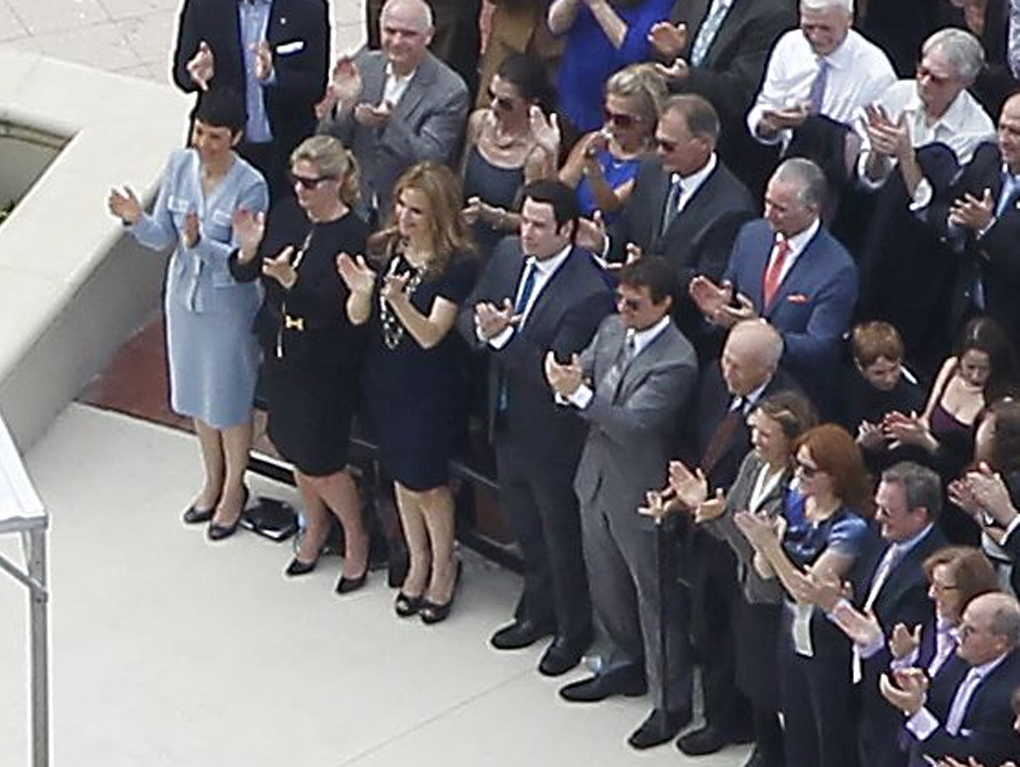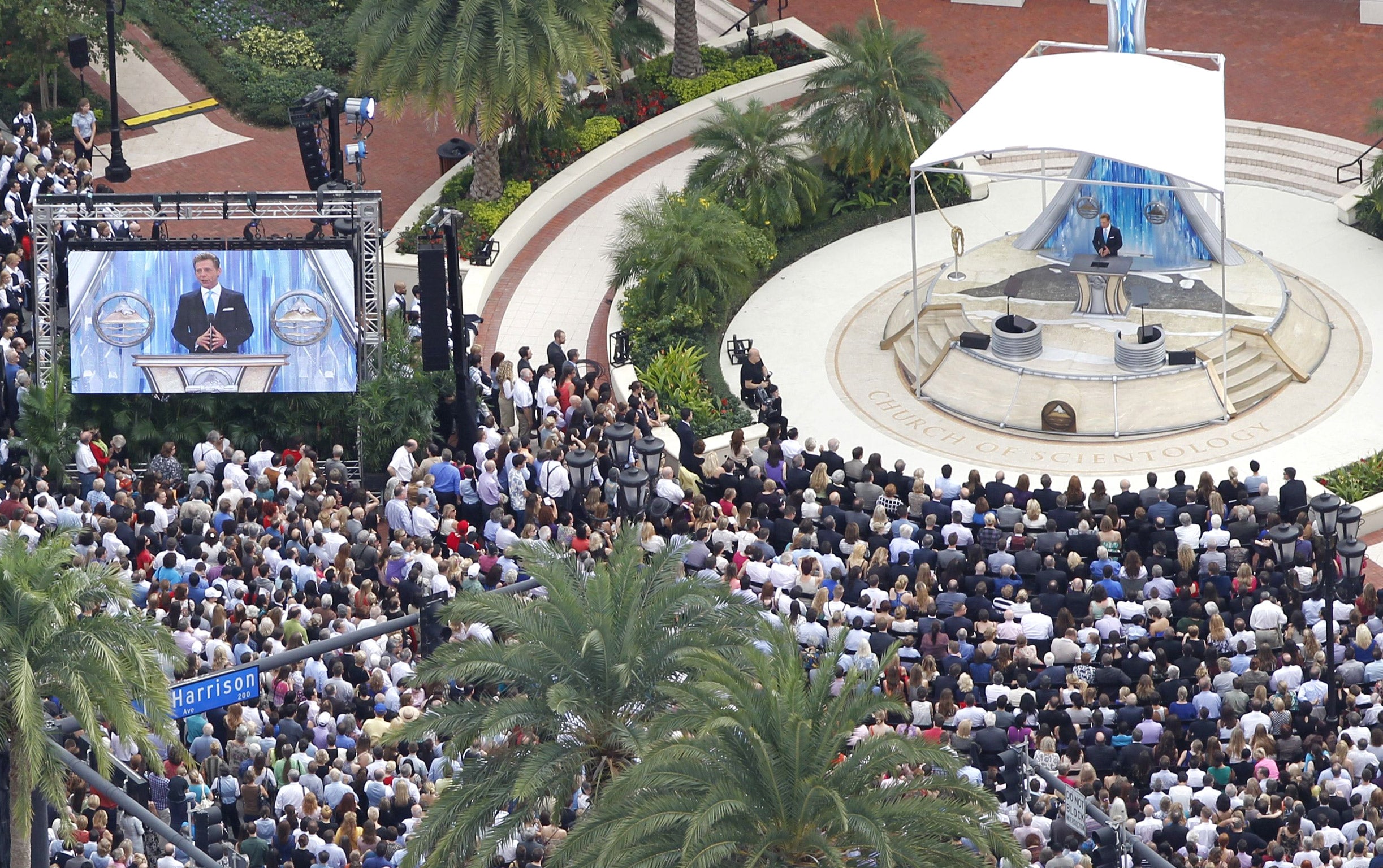The Church of Scientology's new $145m complex has generated more in fundraising than it cost
The site offers parishioners the opportunity to undergo a secretive programme devised by L Ron Hubbard that is said to heighten senses and provide special abilities

Your support helps us to tell the story
From reproductive rights to climate change to Big Tech, The Independent is on the ground when the story is developing. Whether it's investigating the financials of Elon Musk's pro-Trump PAC or producing our latest documentary, 'The A Word', which shines a light on the American women fighting for reproductive rights, we know how important it is to parse out the facts from the messaging.
At such a critical moment in US history, we need reporters on the ground. Your donation allows us to keep sending journalists to speak to both sides of the story.
The Independent is trusted by Americans across the entire political spectrum. And unlike many other quality news outlets, we choose not to lock Americans out of our reporting and analysis with paywalls. We believe quality journalism should be available to everyone, paid for by those who can afford it.
Your support makes all the difference.They already have plenty of star power, but celebrity Scientologists Tom Cruise and John Travolta could now add super powers to their skillsets.
The actors were among thousands of Scientology parishioners gathered this weekend at the Church’s worldwide spiritual headquarters in Clearwater, Florida, to celebrate the dedication of its newly completed Flag Building, which contains facilities for what the late Scientology founder L Ron Hubbard dubbed his “Super Power” programme. Those privileged enough to undergo the secretive Super Power Rundown are said to acquire heightened senses and special abilities. The new building marks an ambitious undertaking by the Church of Scientology to tackle what it calls its most important programme to date.
The building is the tallest in Clearwater and the largest in the Scientology portfolio, taking up an entire city block. Construction of the 377,000sq ft complex has taken 15 years and cost up to $145m (£90m). During the event on Sunday, six-foot privacy fences were erected to protect attendees from public view, while Scientology security staff stood by to stop curious onlookers getting too close. The Church declined to allow Florida newspaper the Tampa Bay Times a tour of the premises, and it is not yet known whether the building will ever be open to the public.
The eight-minute dedication ceremony was led by Church boss David Miscavige, but attended by fewer Scientologists than anticipated. City authorities had reportedly been warned to expect crowds of 10,000, but some estimates suggested little more than half that number had actually turned up.
According to planning documents and details on the Church’s website, the sprawling complex contains a bookstore, a chapel, a basement dining hall and several hundred small rooms for the entry-level Scientology system known as “auditing”. There is also an Office of the Commodore: a space set aside for Hubbard, who died in 1986. Miscavige’s office is at the top of the building on the seventh floor, while on the sixth is a running track, where Scientologists are expected to run in circles until they attain enlightenment, or what Hubbard called a “cognition”. On the same level is a sauna, where parishioners can enjoy a “purification rundown”, or “purif”.
But the star attraction of the new building is housed on the fifth floor: the Super Power programme, which the 59-year-old Church has described as its most important project to date. Hubbard supposedly created the Super Power Rundown in 1978, promising that it was “the answer to a sick, a dying and dead society”, that it would help Scientologists to “create a new world,” and could “literally revive the dead”.
At his own death, Hubbard left behind his plans for the programme, which involves the use of futuristic devices to help subjects hone the 57 senses or “perceptics” he identified, which include taste, touch, smell, endocrine states, compass direction and perception of appetite.
During the 1990s the Rundown was tested on a handful of wealthy donors at the Church’s California headquarters. Among them was hedge fund boss Matt Feshbach, who later told Florida’s St Petersburg Times that the process had helped him to outperform his business rivals, to appreciate beauty more deeply, and to sense danger more quickly than others. In spite of this success, the programme was kept largely under wraps until an appropriate facility could be constructed.

In 2012 The Village Voice acquired leaked digital renderings of the Flag Building interior, which included details of the devices used in the Super Power Rundown, such as a large gyroscope known as the “motion quadrant”, which spins users to enhance their sense of compass direction. Among the other tools in the facility are a “smell wall”, a “taste wall” and an “oiliness table”.
Auditing sessions are thought to cost as much as $1,000 per hour, and the cost of a Super Power Rundown remains a mystery, but the Flag Building has already proved to be a successful fundraising tool. Scientology leaders originally estimated its cost at $100m, but according to the Tampa Bay Times, since the fundraising campaign for its construction began in the early 1990s, the Church has attracted donations of more than $145m.
The fundraising drive continued even when construction came to a halt in 2003; building only recommenced in earnest in 2009, after the city of Clearwater introduced fines of $250 per day for violating its planning code.
This year former Scientologists Rocio and Luis Garcia sued the Church, which they left in 2011, for fraud and deception. The couple, who donated more than $340,000 in their time as members, said the organisation was using the Flag Building “as a shill” to raise money. The Church rejected the accusations as “frivolous” and “blatantly false”.
On New Year’s Day 2012, Debbie Cook, a former captain at Scientology’s Flag Service Organisation in Clearwater, sent a mass email to members accusing Miscavige of having turned her beloved Church into a mere machine for “continuous fundraising”.
Hubbard, she wrote, “never directed the purchase of opulent buildings or … posh renovations or furnishings”. The Church then sued Cook for violating the confidentiality agreement she had signed upon leaving its staff in 2007.

Join our commenting forum
Join thought-provoking conversations, follow other Independent readers and see their replies
Comments